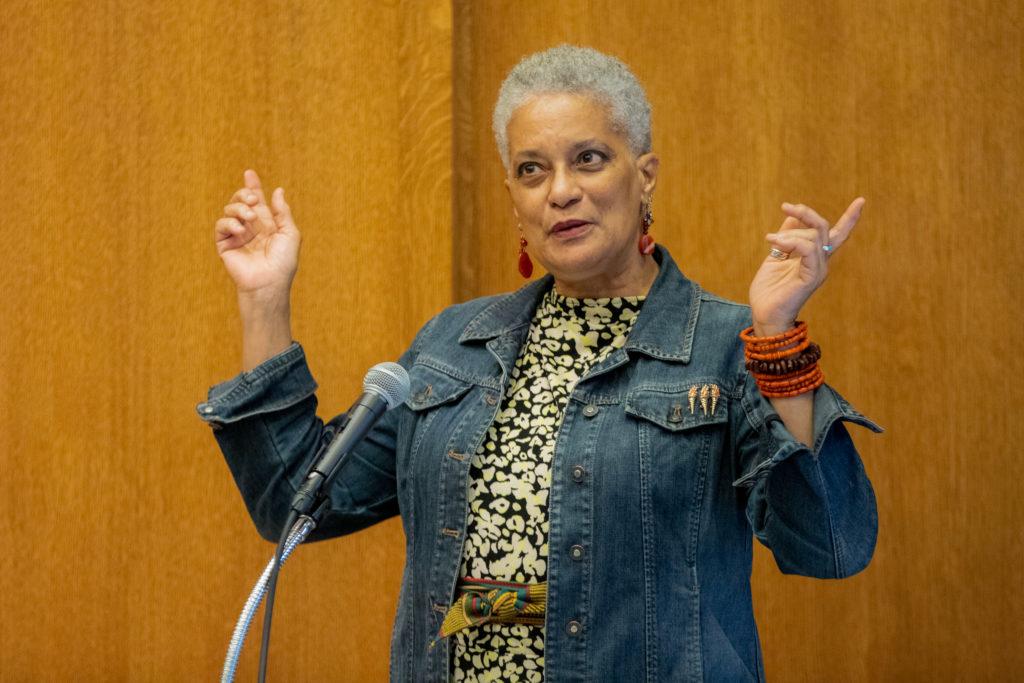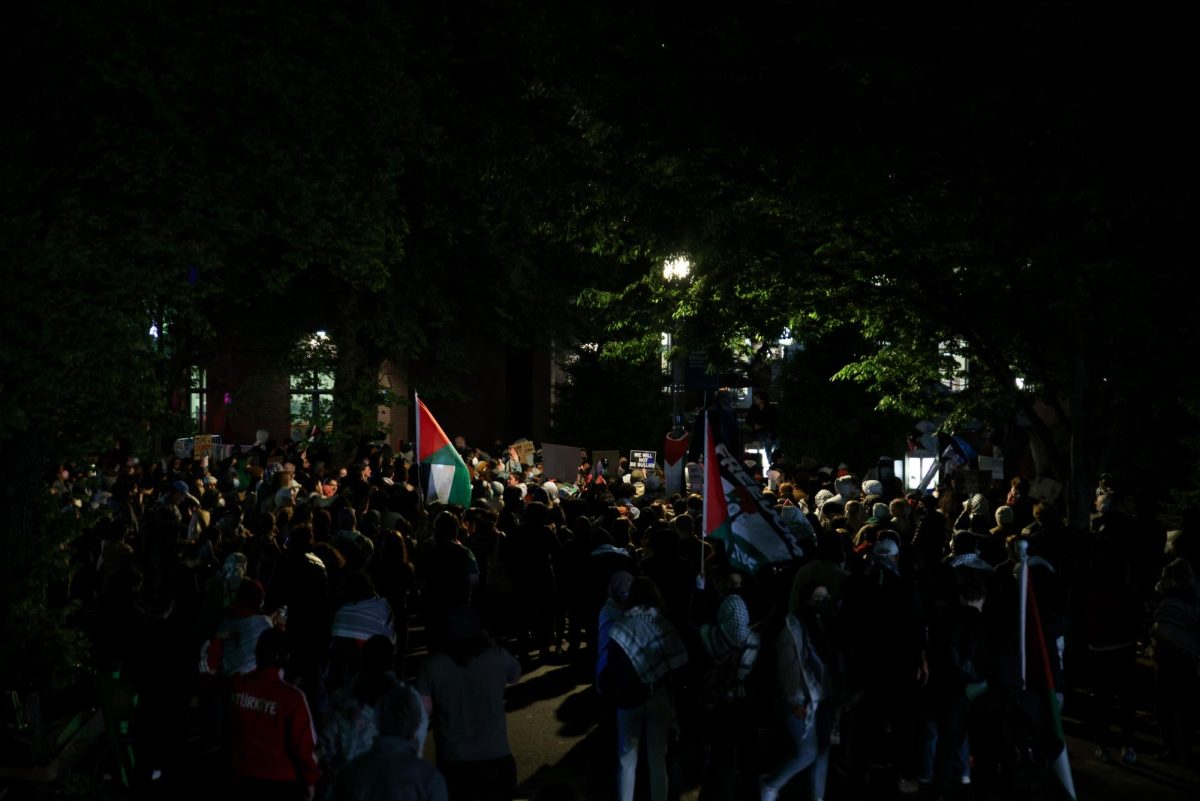A Georgetown University student descended from slaves sold by her institution in 1838 discussed her activism and past at the Textile Museum Thursday.
Mélisande Short-Colomb – a founding member of the GU272 Advocacy Team, a group that raises awareness about the descendants of slaves sold by Georgetown to avoid bankruptcy – spoke about discovering her ancestors’ history and ties to her university. She also talked at the event about how narratives about the prosperity of the U.S. tend to collapse or minimize the role black Americans play in the present and played in the past to bring about that success.
Short-Colomb said she discovered in 2016 that her ancestors had been part of the 1838 sale after a genealogist from the Georgetown Memory Project reached out to her. After Georgetown administrators offered legacy admission to the descendants, Short-Colomb – then 63 years old – decided to enroll at the university.
“All of my reasons for doing this have nothing to do with the reasons why 18- to 22-year-olds are in college,” Short-Colomb said. “I am here because it is my certain responsibility to be the representative and to speak for my family and for people who were unable and have no agency to speak for themselves. Or if they did, they were deceived and put in situations where they could no longer protect or take care of them.”
Throughout her undergraduate tenure, Short-Colomb has advocated for a $27.20 fee applied to student tuition bills each semester to establish a reconciliation fund for descendants of the 272 slaves. Almost two-thirds of students voted in favor of the fee in a referendum last year – an election that broke records for student government turnout at Georgetown – but Georgetown officials declined to introduce the fee, launching a new initiative instead.
Short-Colomb is now working on a one-person show titled “Here I Am,” which delves into her discovery of her family’s ties to Georgetown using archival materials from the university and her experience as a student.
“My expectation was once I was accepted, I’m going to go to school, I’m going to struggle and be miserable for four years and graduate,” she said. “And I do a little bit of that, but then I get to do these amazing things.”
She said multi-generational black people like herself have a “different connection and perspective of American-ness” than people of color who have recently immigrated. Short-Colomb, who stands four generations removed from slavery in her family, said people are beginning to lose stories of that time because they lack “traditions of oral histories.”
“All of those stories are sacrificed to American-ness and the hardships or the blessedness of becoming American,” Short-Colomb said.
Short-Colomb said she grew up in New Orleans, “one of the deepest and most racist places” in America. She was born shortly after the Supreme Court in 1954 handed down its decision in Brown v. Board of Education of Topeka, which outlawed segregation in schools, and recalled receiving weekly bomb threats from Ku Klux Klan members while she was in school.
“It wasn’t very safe or secure out into the bigger world,” she said. “But into the bigger world we go, and we rise to the occasion, and we are prepared to meet the challenges that we must. One of my earliest recollections as a child was wondering why white people hated me, and it wasn’t something you could get away from.”
She said narratives about Louisiana’s history that depict the people having a “good time” celebrating the state’s food and music fail to acknowledge that the state’s successes, in many cases, “came from human misery.”
“I am an 11th-generation American,” Short-Colomb said. “And when you look at people in America in an atmosphere today when we question and we wonder, ‘Well, who are Americans?’ – me. And I have a very long – and many of us have very long histories – here in this place, and it is time for us as a society to accept and tell better narratives about who we are.”





